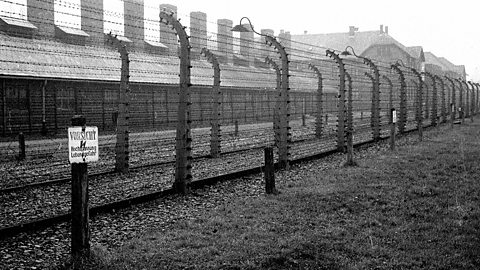Consequences of the Holocaust

Jewish people call the Holocaust the 'Shoah', which means 'destruction' or 'catastrophe'. It's estimated that 6 million Jewish people died. The Nazis also:
- exterminateTo destroy something completely. half a million Roma gypsies
- put a quarter of a million mentally ill and disabled people to death
- sterilised deaf people
- imprisoned homosexuals
- considered that Slavic people were sub-human and intended to starve up to 30 million Soviet civilians and prisoners of war
Jewish people reacted in different ways:
- in some places, the Jewish people resisted, eg the Warsaw Uprising of 1943
- some of them fled from Germany and other countries such as Poland.
- Some put their children on Kindertransport trains, which took them to Great Britain, where they were fostered
- some hid
- in some places, the Jewish people accepted their fate and even cooperated with the Nazis
- some survived the concentration camps, often against all odds
Many Jewish people were saved by acts of bravery and compassion carried out by Jewish and non-Jewish people alike, eg Oskar Schindler. Schindler was an ethnic German and credited with saving the lives of 1,200 Jews, despite being a member of the Nazi party. His moving story was made into the film, Schindler's List in 1993.
After the war, Nazi leaders were put on trial at the Nuremberg War Crimes trials (1945‒1946). Many were sentenced to death. War criminals continued to be found and put on trial, including high profile cases such as Adolf Eichmann in 1960 and Klaus Barbie who was put on trial in 1987. It is universally believed that such a genocide must never be allowed to happen again.
In 1948, the nation of Israel was established as a state for Jewish people.
27 January is Holocaust Memorial Day (HMD). The date was chosen as the anniversary of the liberation of Auschwitz-Birkenau. Holocaust Memorial Day is an international day of remembrance – not only for the Jewish Holocaust, but for subsequent genocideThe attempt to kill or destroy national, ethnical, racial or religious groups. in places like Cambodia, Bosnia and Rwanda. All over the world, people honour the survivors and reflect on the consequences.